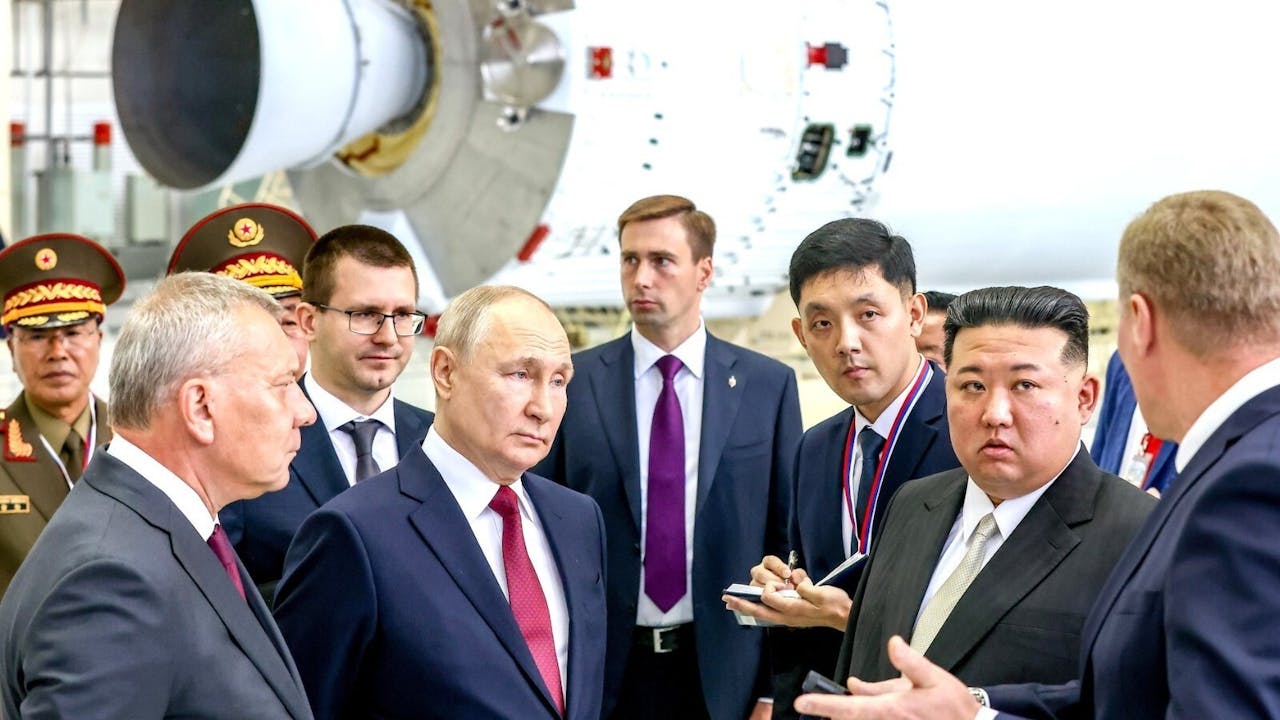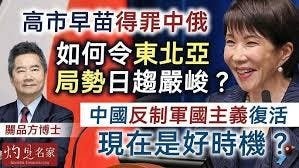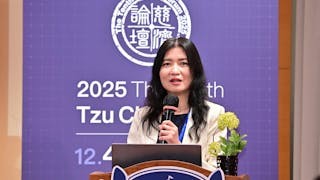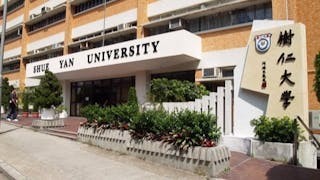北韓領導人金正恩對俄羅斯進行了為期5天的訪問,並於9月13日在俄羅斯遠東的一個航天發射場與俄羅斯總統普京進行了歷史性會晤,這對東北亞的安全具有直接的地緣政治影響。
北韓黨政軍要人同訪俄
朝鮮勞動黨總書記、國務委員長金正恩率領的軍政代表團,包括外務相崔善姬、朝鮮人民軍元帥李炳哲和朴正天、國防相強純男、勞動黨中央委員會書記吳秀容和朴泰成等。在會面期間,普京熱情地向金正恩致意,並說兩國有着「同志式的、富有善意」的友好關係。普京強調睦鄰關係的重要性及雙方發展兩國人民福利和繁榮的必要性。
回應普京的致辭,金正恩對俄方安排他成功訪俄表示感謝。同時,他向全體俄羅斯人民表達了朝鮮人民的「戰鬥敬意和兄弟般的親切問候」。金正恩表示,俄羅斯人建立了強大的俄羅斯和維護了國家的「戰略利益」。
根據西方媒體報道,金正恩與普京會面了5個小時,普京表示將幫助平壤發展衛星。鑑於北韓在2023年初未能發射間諜衛星,此舉並不令人意外。
金正恩隨後訪問了不同的地方,並公開表達了他對俄羅斯軍事和先進技術,包括軍艦和戰鬥機的濃厚興趣。
在金正恩訪問俄羅斯之前,俄羅斯國防部長紹伊古曾在7月間訪問朝鮮,期間金正恩向俄羅斯訪客介紹了平壤的導彈項目,包括「火星-18」洲際彈道導彈。
金正恩訪問俄羅斯期間,傳媒報道指出,莫斯科對北韓的砲彈和槍炮表現出濃厚的興趣,特別是俄羅斯在烏克蘭的戰爭曠日持久,可能會遭遇烏克蘭大規模的軍事反攻。
堅持「主體思想」和「先軍政治」
從力量平衡的角度來看,金正恩訪俄並會見普京有巨大的地緣政治意義。
首先,鑑於社會主義北韓創立和奉行「主體思想」(政治自主、經濟自立、國防自衞)和「先軍政治」雙重政策,北韓和俄羅斯之間最終敲定的武器交易很可能將在內部和外部鞏固平壤政權。在國內,北韓將能夠利用與俄羅斯的軍火交易帶來的豐厚收入,來應付內部經濟發展和軍事建設。擁有大量彈藥庫存的平壤抓住俄烏戰爭僵局的黃金時機,加大軍事武器出口,一方面增強其軍工綜合體,另一方面充分利用武器庫存增加經濟利潤。
儘管有人猜測北韓渴望獲得俄羅斯的糧食援助,但傳媒報道指出,平壤拒絕了莫斯科的提議。 如果是這樣,這意味着北韓在意識形態上致力於實現政治自主和經濟自立,而不會過度依賴包括俄羅斯和中國在內的鄰國。
火炮換衛星技術划得來?
其次,從達到勢力平衡的角度來看,金正恩向俄羅斯傾斜的外交舉動有幾層意義。此舉表現出北韓經濟發展和現代化對中國依賴程度較低的趨勢。必須指出的是,儘管金正恩在2019年1月訪問了中國,但沒有跡象顯示北韓正在效法中國的經濟現代化模式。從意識形態上講,平壤在經濟現代化方面更願意採取更謹慎的態度,或許認為中國模式過於資本主義,同時要以堅韌和成功的姿態對抗聯合國和美國的制裁。
金正恩的外交轉向普京還有另一個直接的地緣政治意義,就是放棄與美國的對話,與過去金正恩與美國前總統特朗普3度會面的平壤和華盛頓蜜月期不同,金正恩現在將俄羅斯視為北韓最可靠的軍事盟友。從北韓的戰略角度來看,北韓的火砲交換俄羅斯的衛星技術很划得來。事實上,提高北韓發射間諜衛星的能力,將增強其自身的軍事能力,特別是在東北亞發生軍事衝突時。 因此,在金正恩9月訪問俄羅斯期間,平壤和莫斯科之間可達成雙贏局面。
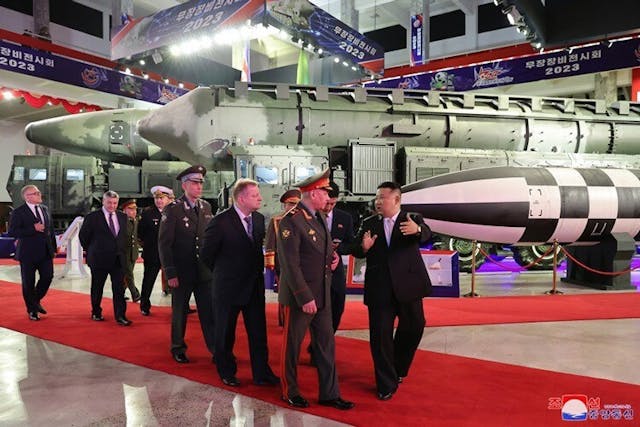
平衡中國影響威懾韓日
金正恩此行最重要的意義,是利用俄羅斯的軍事和先進技術對抗「美帝國主義」。 北韓仍然認為美國是一個損害其國家安全利益的「帝國主義」國家。 因此,平壤的核子計劃不僅旨在震懾美國,還旨在威懾美國的盟友,特別是南韓和日本。
簡單來說,金正恩對與俄羅斯軍事結盟的新外交舉措有雙重目的:一方面平衡中國對北韓的影響;另一方面則威懾美國和華盛頓在東北亞的盟友。
第三,鑑於有傳媒報道在烏克蘭發現了南韓的軍事武器,北韓可能為了平衡南韓在俄烏戰爭中的影響力而刻意與俄羅斯結成軍事同盟。南韓總統尹錫悅領導下的韓國,比較他的前任文在寅,不僅表現出更親近華盛頓的傾向,也更支持日本。因此,金正恩轉向俄羅斯軍事援助的外交策略,也可以視為針對南韓的平衡之舉。
中朝俄形成「軸心國」無根據
第四,儘管一些分析人士認為,北韓、俄羅斯和中國形成所謂的「軸心國」崛起,但他們誇大了3國的團結,忽視了3國在烏克蘭戰爭問題上的分歧。北京已經表明了與俄羅斯捲入烏克蘭戰爭保持距離的態度,並有意充當潛在的仲裁者,或許可以促成莫斯科和基輔之間的對話,並有望實現和平。然而,北韓在烏克蘭戰爭中提供火砲支持俄羅斯,將使北京更難做到這一點。
畢竟,俄羅斯致力於維護其佔領的烏克蘭領土,例如聲稱與烏克蘭分離的4個共和國。有趣的是,北韓支持俄羅斯吞併烏克蘭4個地區的決定及其在烏克蘭的「神聖戰爭」。 因此,雖然中國在俄烏戰爭中扮演更中立的仲裁者,但北韓卻明顯站在俄羅斯一邊,這意味着北京、平壤和莫斯科之間「軸心國」的主張,在沒有證據支持的情況下是缺乏說服力的。
第五,儘管日本首相岸田文雄表示有興趣「隨時」會見金正恩,以實現沒有核武的世界,但北韓尚未作出積極回應。傳媒報道指出,北韓和日本在3月和5月就一些被北韓扣留的日本人命運舉行了會議。東京對據報被綁架到北韓的約17名日本人的命運深感擔憂。 然而,如果北韓將日本視為歷史上的「帝國主義」國家,只要平壤將東京視為美國領導的東北亞聯盟不可或缺的組成部分,那麼雙方關係將繼續不穩定。 畢竟,金正恩在軍事上轉向俄羅斯,其中一個目的便是制衡日本逐漸增強的軍事實力。
平壤挺俄反阻北京調停戰爭?
總而言之,金正恩對俄羅斯的歷史性訪問,以及與普京的重要會面,標誌着北韓勢力平衡戰略的分水嶺。平壤的目的不僅是制衡「美帝國主義」,也是平衡中國對北韓的影響力,減少自身對中國經濟援助的依賴。北韓堅定支持俄羅斯介入烏克蘭戰爭,在某種程度上不經意阻礙了中國作為俄烏衝突仲裁者的努力。俄羅斯準備鞏固在烏克蘭佔領的土地,而烏克蘭則在西方盟友的支持下決心反擊。
金正恩的外交轉向更依賴俄羅斯軍事技術,其明確目的是威懾美國和華盛頓在東北亞的盟友,特別是南韓和日本。在南韓向美日靠攏的背景下,平壤向莫斯科傾斜的政策也是為了在軍事上制衡首爾也就不足為奇了,尤其是在南韓不斷與美國進行聯合軍演以威懾北方社會主義同胞兄弟的情況下。儘管日本以大量經濟援助作為交換條件,表現出對東北亞無核化的興趣,但平壤和東京之間的關係仍然困難重重。北韓將日本視為歷史上的「帝國主義」國家,以及關於被綁架的日本人困境的持續討論,是平壤與東京關係的棘手問題。
總的來說,北韓向莫斯科傾斜的新政策,對東北亞安全有巨大的地緣政治影響。長遠來看,北韓的親莫斯科軍事政策是否會在北韓領導層內部形成親俄派系,還有待觀察。
The Kim-Putin meeting and its geopolitical significance
The five-day visit of the North Korean leader Kim Jong Un to Russia and his historical meeting with the Russian counterpart Vladimirovich Putin at a cosmodrome in Russia’s Far East on September 13 had immediate geopolitical significance for the security of Northeast Asia.
As the general secretary of the Workers’ Party of Korea and the president of the State Affairs of the Democratic People’s Republic of Korea (DPRK), Kim Jong Un led a delegation composed of Foreign Minister Choe Son Hui, Marshals of the Korean People’s Army Ri Pyong Chol and Pak Jong Chon, Minister of National Defence Kang Sun Nam and O Su Yong as well as Pak Thaae Song, and other secretaries of the party’s Central Committee. During their meeting, Putin warmly greeted Kim and added that both countries had friendly and “comradely goodwill” relations. Putin emphasized the importance of good neighbourly relations and the need for both sides to develop the well-being and prosperity of their peoples.
In response to Putin’s remarks, Kim expressed his gratitude to the Russian side for arranging his successful visit to Russia. Moreover, he conveyed “the militant respect and warm fraternal greetings” of the people in DPRK to all the Russians, who according to Kim built up a powerful Russia and defended the “strategic interest” of their country.
According to the western media reports, Kim and Putin met for five hours during which Putin said he would help Pyongyang to develop satellites. This move was not surprising given the fact that North Korea in early 2023 failed to launch a spy satellite.
Kim then visited different places where he expressed in public his deep interest in the Russian military and advanced technology, including warships and fighters.
Prior to Kim’s visit to Russia, the Russian defence minister Sergei Shoigu had visited North Korea in July during which Kim Jong Un showed the Russian visitors Pyongyang’s missiles program, including the Hwasong intercontinental missile.
During the Kim visit to Russia, media reports pointed to the deep interest shown by Moscow on the North Korean artillery shells and guns, especially as Russia’s war in Ukraine is dragged on with the prospects of encountering a large-scale Ukrainian military counteroffensive.
From the perspective of the balance of power, the Kim Jong Un visit to Russia and his meeting with Putin had tremendous geopolitical significance.
First, given the fact that socialist North Korea is committed to building up its twin policies of achieving Juche (self sufficiency or autonomy) and the military first, the arms deal that will very likely be finalized between North Korea and Russia will consolidate Pyongyang’s regime internally and externally. Internally, North Korea will be able to use the lucrative revenues from its arms deal with Russia to cope with its internal economic development and military build-up. Having a large stockpile of ammunition, Pyongyang grasps a golden opportunity of the stalemate in the Russo-Ukrainian war to boost its exports of military weapons, thereby strengthening its military industrial complex on the one hand and fully utilizing its arsenals to enhance economic profits on the other hand.
Although it was speculated that North Korea is keen to receive food aid from Russia, media reports have pointed to Pyongyang’s decline of the Moscow offer. If so, it means that North Korea is ideologically committed to achieving its Juche or self-sufficiency without any overreliance on its neighbours, including Russia and China.
Second, from the perspective of achieving the balance of power, Kim Jong Un’s diplomatic move that is tilted toward Russia has several implications. He shows a tendency of being less dependent on China for North Korea’s economic development and modernization. It must be noted that although he visited China in January 2019, there was no sign that North Korea is following the China model of economic modernization. Ideologically speaking, Pyongyang prefers to adopt a far more cautious approach in its economic modernization, seeing the Chinese model as perhaps too capitalistic while resisting the sanctions from the United Nations and the US in a resilient and successful manner.
Kim Jong Un’s diplomatic turn to Putin has another immediate geopolitical significance. Abandoning the dialogue with the US, unlike the honeymoon period between Pyongyang and Washington in the past when Kim met US President Donald Trump three times, Kim is now seeing Russia as North Korea’s most reliable military ally. Russia’s satellite technology can be usefully exchanged for North Korea’s artillery, from North Korea’s strategic perspective. Indeed, improving the North Korean ability to launch spy satellite will enhance its own military capability, especially in time of military conflicts in Northeast Asia. Hence, a win-win situation can be forged between Pyongyang and Moscow during the Kim visit to Russia in September 2023.
The most important impact of Kim’s visit is to utilize the Russian military and advanced technology to counter the US “imperialism.” North Korea still perceives the US as an “imperialist” country detrimental to its national security interest. As such, Pyongyang’s nuclear program aims at deterring not only the US but also other US allies, notably South Korea and Japan.
In brief, Kim’s new diplomatic initiative targeting at a military alliance with Russia has dual purposes: checking China’s influence on North Korea on the one hand and checking the US and Washington’s allies in Northeast Asia on the other hand.
Third, given that some media reports pointed to South Korea’s military weapons being found in Ukraine, North Korea may deliberately forge a military alliance with Russia for the sake of balancing Seoul’s influence in the Russo-Ukrainian war. South Korea under President Yoon Suk-yeol has demonstrated a tendency of not only more pro-Washington but also more supportive of Japan than his predecessor Moon Jae-in. As such, Kim Jong Un’s diplomacy of shifting to the Russian military aid can also be seen as a balancing act against South Korea.
Fourth, while some analysts have pointed to the rise of a so-called “axis” between North Korea, Russia and China, they have exaggerated their unity and ignored their differences over the Ukrainian war. Beijing has demonstrated its tendency to distance itself from the Russian involvement in the Ukrainian war and its intention of acting as a potential arbitrator who can perhaps bring about dialogue and hopefully peace between Moscow and Kiev. However, the North Korean provision of artillery to support Russia in the Ukrainian war is going to make it more difficult for Beijing to do so.
After all, Russia is keen to maintain the Ukrainian territories it occupied, such as the four republics that claimed separation from Ukraine. Interestingly, North Korea supports Russia’s decision to annex four Ukrainian region and its “sacred fight” in Ukraine. Hence, while China acts as a more neutral arbitrator in the Russo-Ukrainian war, North Korea clearly sides with Russia, meaning that the claim of an “axis” between Beijing, Pyongyang and Moscow was unconvincing without evidence.
Fifth, although the Japanese Prime Minister Fumio Kishida has expressed his interest in meeting Kim Jong Un “at any time” for the sake of achieving a world without nuclear weapons, North Korea has not yet responded positively. Media reports have pointed to meetings between North Korea and Japan in March and May over the fate of some Japanese people who were deducted by North Korea. Tokyo is deeply concerned about the flight of some 17 Japanese who were reportedly abducted to North Korea. However, if North Korea sees Japan as a historically “imperialist” country and so long as Pyongyang regards Tokyo as an indispensable element of the US-led alliance in Northeast Asia, both sides will continue to have a rocky relationship. After all, Kim Jong Un’s shift to Russia militarily has an objective of balancing the increasing strength of the Japanese military.
In conclusion, Kim Jong Un’s historical visit to Russia and his important meeting with Putin marked a watershed in North Korea’s balance-of-power strategy. Pyongyang aims at not only balancing the US “imperialism,” but also checking the influence of China on North Korea and lessening its own reliance on the Chinese economic assistance. Unintentionally, China’s attempt at being an arbitrator in the Russo-Ukrainian conflict is being hindered to some extent by North Korea’s staunch support of Russia’s involvement in the Ukrainian war. Russia is going to consolidate its occupied territories in Ukraine, while Ukraine supported by the western allies is determined to fight back. Kim’s diplomacy of shifting to rely more on the Russian military technology has the clear objective of balancing the US and Washington’s allies in Northeast Asia, notably South Korea and Japan. At a time when South Korea is moving closer to the US and Japan, it is not surprising that Pyongyang’s policy of leaning to Moscow also aims at balancing Seoul, militarily speaking, especially as South Korea has been constantly conducting joint military exercises with the US as a deterrence to its northern socialist brother. The relations between Pyongyang and Tokyo remain difficult, even though Japan has shown its interest in the denuclearization of Northeast Asia in exchange of massive economic assistance. North Korea’s historical perception of Japan as an “imperialist” country and the ongoing discussion on the plight of abducted Japanese are the thorns in Pyongyang-Tokyo relations. Overall, North Korea’s new policy of leaning to Moscow has tremendous geopolitical implications for Northeast Asian security. It remains to be seen whether the pro-Moscow military policy of North Korea will perhaps build up a pro-Russian faction within the North Korean leadership in the long run.
原刊於澳門新聞通訊社(MNA)網站,本社獲作者授權轉載。原文網址:https://www.macaubusiness.com/opinion-the-kim-putin-meeting-and-its-geopolitical-significance%EF%BB%BF/



